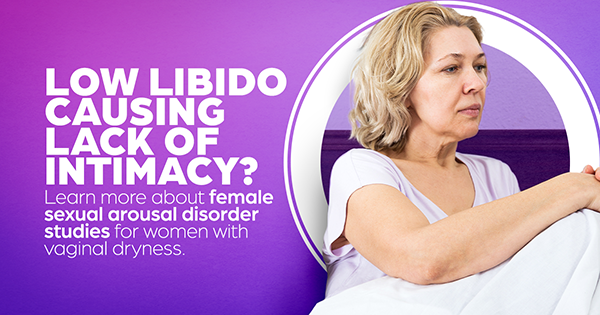For many women, sexual health is an essential part of their overall well-being. But for some, experiencing difficulty with sexual arousal can be frustrating and emotionally challenging. Female sexual arousal disorder (FSAD) is one of the conditions that can affect sexual function, but it’s not widely talked about. Let’s take a closer look at FSAD, what it is, its symptoms, and some tips for managing it.
What Is Female Sexual Arousal Disorder?
FSAD is a sexual dysfunction that affects a woman’s ability to become sexually aroused during sexual activity. It can happen at any age and may be situational or more generalized. While it’s normal for arousal to vary at times, women with FSAD consistently struggle to become or stay aroused during sexual activity, leading to frustration and a decrease in sexual satisfaction.
FSAD isn’t just about physical arousal (like vaginal lubrication), but it also involves emotional and mental arousal. This means that even if a woman wants to be sexually active, she may find it difficult to become aroused mentally, emotionally, or physically.
Symptoms of FSAD
Symptoms of female sexual arousal disorder can include:
- Inability to maintain or experience arousal: This might involve difficulty with physical arousal, such as a lack of vaginal lubrication, even when a woman feels mentally or emotionally ready for sexual activity.
- Reduced sexual desire or interest: Many women with FSAD experience a decreased interest in sex or a lack of pleasure during sexual activities.
- Difficulty or inability to experience sexual excitement: Even in a romantic or intimate setting, women with FSAD may not feel sexually excited or may find that excitement quickly fades.
- Frustration and emotional distress: The condition can lead to feelings of frustration, embarrassment, and emotional distress, which can impact relationships and overall well-being.
It’s important to note that FSAD is different from other conditions like hypoactive sexual desire disorder (HSDD), which relates specifically to low sexual desire. FSAD is about arousal rather than desire—women may want to engage in sexual activity but find themselves unable to become aroused.
What Causes FSAD?
The causes of FSAD can vary, and it’s often a combination of physical, psychological, and relationship factors that contribute to the condition. Common causes include:
- Hormonal changes: Menopause, pregnancy, or fluctuations in hormone levels can impact sexual arousal.
- Medical conditions: Health issues like diabetes, heart disease, and certain medications (like antidepressants) can affect sexual function.
- Psychological factors: Stress, anxiety, depression, or past trauma can interfere with arousal and sexual function.
- Relationship challenges: Lack of communication, unresolved conflicts, or emotional disconnect with a partner can also play a role.

Managing FSAD: Tips for Improving Sexual Arousal
While FSAD can be difficult to manage, there are steps that can help improve sexual arousal and overall sexual satisfaction:
- Communicate with Your Partner: Open communication with your partner is essential for addressing FSAD. Sharing your feelings, concerns, and experiences can foster emotional closeness and reduce feelings of frustration or embarrassment. It also allows your partner to be more supportive and understanding.
- Stress Management: Stress is a major contributor to FSAD. Managing stress through relaxation techniques like meditation, yoga, or deep breathing can help alleviate anxiety and improve sexual arousal. Consider also making time for activities that help you unwind and connect with your body.
- Lifestyle Changes: Engaging in regular exercise, eating a healthy diet, and getting enough sleep can help support your overall health, which in turn can positively impact sexual function. Avoid smoking and limit alcohol consumption, as these can interfere with sexual arousal.
- Seek Therapy: If emotional or psychological factors are contributing to FSAD, therapy can be beneficial. Talking with a therapist who specializes in sexual health or relationships can help address underlying issues that may be affecting your arousal.
- Explore Lubricants and Aids: For women who experience physical symptoms like dryness, using lubricants or other sexual aids can help increase comfort and pleasure during sexual activity.
- Medical Support: Consulting with a healthcare provider can help you explore medical treatments, such as hormone therapy, medications, or other interventions that may improve arousal and sexual function. Always discuss any concerns with your doctor to find the right approach for your needs.

Exploring FSAD Studies at Seattle Clinical Research Center
For women struggling with FSAD, there is hope in the form of ongoing research. Here at Seattle Clinical Research Center, we’re conducting clinical studies to explore new treatments for female sexual arousal disorder. By participating in these studies, you have the opportunity to contribute to advancements in women’s sexual health while potentially gaining access to new therapeutic options.
If you or someone you know is interested in learning more about FSAD or participating in a study, explore our currently enrolling studies. Together, we can continue to make strides toward better sexual health and well-being for all women.


